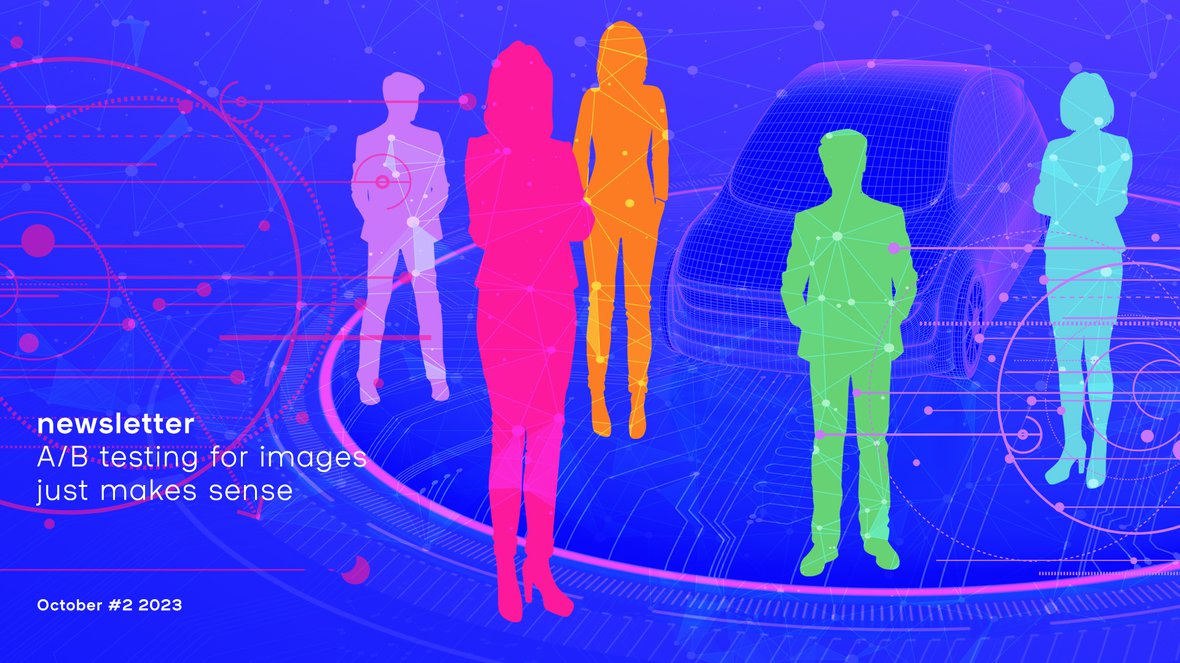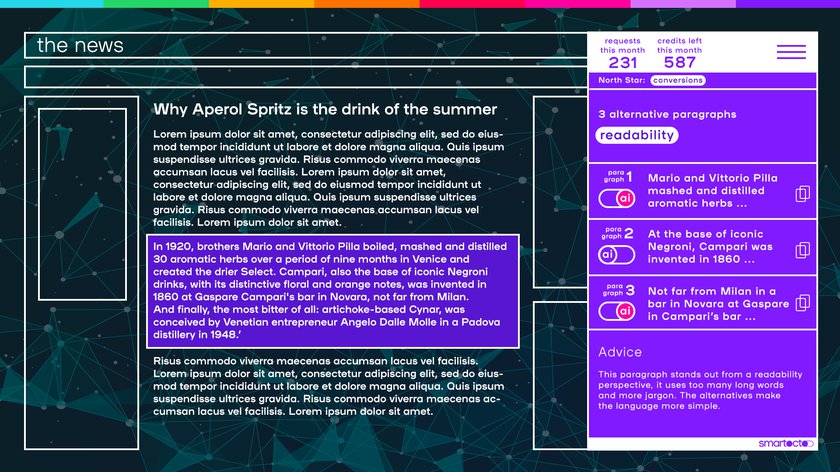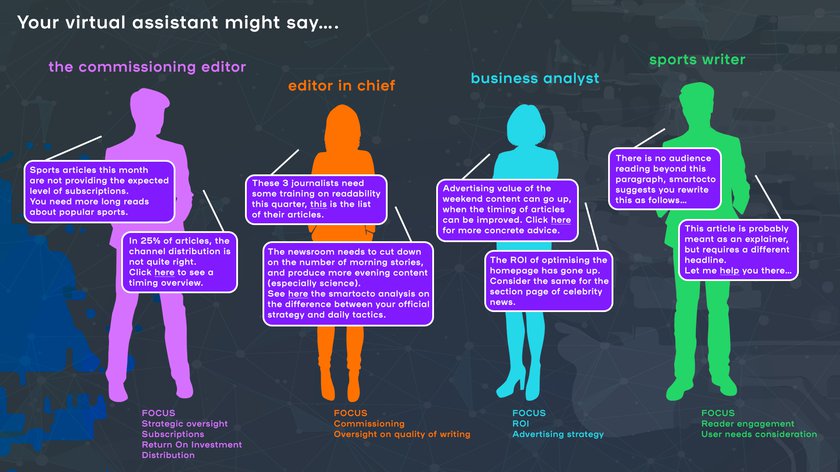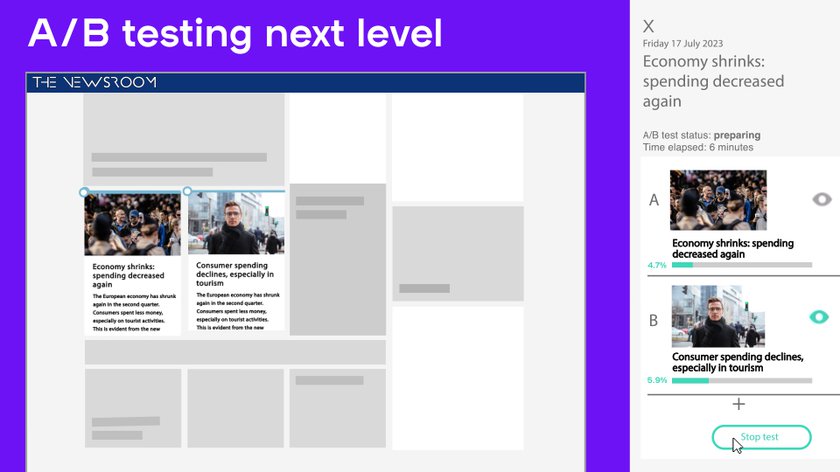Hi there,
It was a true pleasure to spend a month immersed in the world of artificial intelligence during 'smartoctober’ with you. It's a topic that often raises uncertainty and concerns, but we hope to have alleviated some of those worries.
To top off the month, you can still register for this afternoon's webinar, where our CEO Erik van Heeswijk will unveil the steps smartocto is taking with artificial intelligence. Thanks to further integrating AI into the tool, we are now capable of evaluating content more effectively, providing even smarter tips and suggestions for online editors. This means assistance in crafting alternative headlines, helping to rephrase paragraphs where readers tend to disengage, or being able to issue tips such as:
"In the morning, too many articles are being published on the website. Find out here what a better timing would be..."
Erik will explain what smartocto can already do, how articles are protected against copyright theft, and what the future may hold in the webinar at 3:00 PM. You can also register even if you can't attend, as you'll receive the recording.
BLOGS
Just a decade ago, online media publishers had to interpret data themselves. The tools providing insight were like a map for a driver; you had to figure out where to turn left and right to reach your destination.
Thanks to notifications based on machine learning, smartocto has become a navigation system that knows where you're heading - and even considers traffic on the way. If you extend this metaphor, smartocto.ai is an adaptive cruise control with lane assistance.
Nice metaphor, for sure, but what does that look like in your real working life? Our lead data scientist Goran S. Milovanović explains: "By prioritising stories following AI suggestions, fine-tuning headlines, and rewriting content as recommended, editors and newsrooms pave the way for more informed decision-making."
Get a sneak peek behind the scenes with the team that’s integrating artificial intelligence into the smartocto tool.



